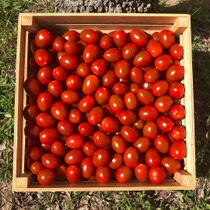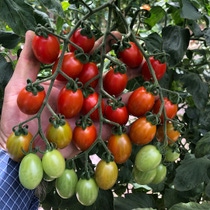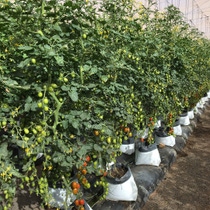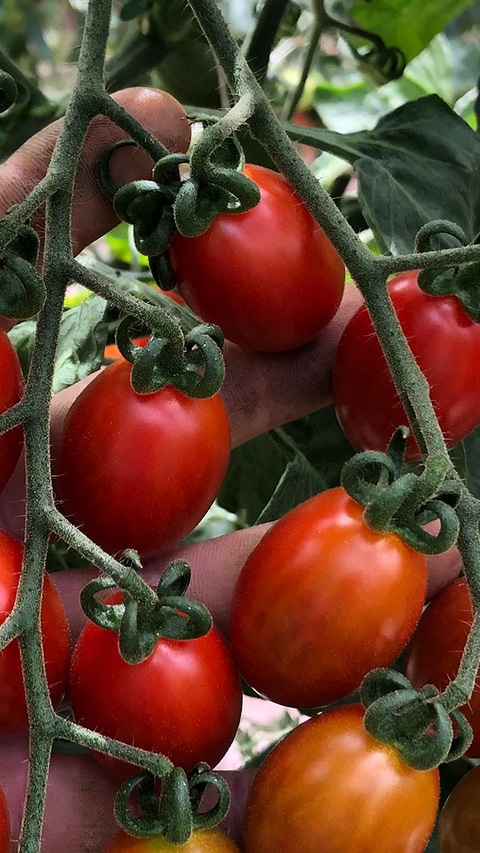Our first ToBRFV intermediate resistant tomato variety will be introduced in Mexico
For the new season in Mexico, we are introducing our first tomato variety with intermediate resistance against Tomato Brown Rugose Fruit Virus (ToBRFV). The new hybrid is a cherry plum tomato variety and combines intermediate resistance with strong agronomic and market performance.
“The new variety has proven its performance during two test seasons at different locations in Sinaloa, Bajio, Baja California and South Mexico,” says Hiram Gutierrez Ayala, Crop Sales Manager Tomato Fresh for NAFTA. “The variety showed a reliable resistance under light and heavy virus pressure and will contribute to a more stable supply of high-quality grape tomatoes for the domestic Mexican market and the important export markets USA and Canada. Consumers will value the snack tomatoes for their attractive appearance, shelf life and sweetness.”
“Tomato Brown Rugose Fruit Virus (ToBRFV) is a contagious plant virus which easily spreads via mechanical transmission. Infected fruits are unsellable,” says Ivan Angulo Araujo, Regional Product Specialist Tomato Fresh. “With the intermediate ToBRFV resistance the plants and fruits will remain symptomless and sellable, offering a more reliable revenue for the growers.”
This introduction is the result of the accelerated development process for parent lines using innovative breeding practices such as indoor farming and marker technology.
The company intends to introduce new Roma type varieties in 2021 and to develop more ToBRFV resistant varieties for other tomato segments and regions over the next few years. Through this continuous innovation BASF demonstrates its commitment to deliver well-performing and reliable solutions that cater to the needs of all players along the value chain and consumers.



About BASF’s Agricultural Solutions division
With a rapidly growing population, the world is increasingly dependent on our ability to develop and maintain sustainable agriculture and healthy environments. Working with farmers, agricultural professionals, pest management experts and others, it is our role to help make this possible. That’s why we invest in a strong R&D pipeline and broad portfolio, including seeds and traits, chemical and biological crop protection, soil management, plant health, pest control and digital farming. With expert teams in the lab, field, office and in production, we connect innovative thinking and down-to-earth action to create real world ideas that work – for farmers, society and the planet. In 2019, our division generated sales of €7.8 billion. For more information, please visit www.agriculture.basf.com or any of our social media channels.
About BASF
At BASF, we create chemistry for a sustainable future. We combine economic success with environmental protection and social responsibility. More than 117,000 employees in the BASF Group work on contributing to the success of our customers in nearly all sectors and almost every country in the world. Our portfolio is organized into six segments: Chemicals, Materials, Industrial Solutions, Surface Technologies, Nutrition & Care and Agricultural Solutions. BASF generated sales of €59 billion in 2019. BASF shares are traded on the stock exchange in Frankfurt (BAS) and as American Depositary Receipts (BASFY) in the U.S. Further information at www.basf.com.
